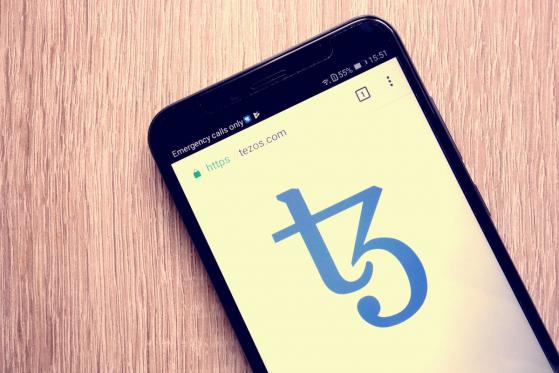Despite losing some steam amidst the latest cryptocurrency market downturn, the Tezos (XTZ) token, the newest entry into the top 20 crypto coins, has enjoyed a solid recovery since its crash last week, which wiped out nearly half of its value.
After touching a low of $1.10 on Friday, the XTZ price more than doubled to a peak of $2.52 on Sunday, and presently trades at around $2.20, still below the $4 level maintained for some time before the crash. But at this price, XTZ may start looking attractive for being an almost complete and promising project that promises to reach a rank similar to EOS.
!XTZ!
The Tezos governance and network security system is still relatively unpopular. Somewhat similar to EOS, there are delegates that offer to stake coins and produce blocks. In the coming months, more Tezos owners will be coming forward to select a delegate and start the process of “baking” their XTZ tokens for rewards.
But there are also dishonest players in the system, offering dubious types of staking rewards:
https://twitter.com/Tezos__Canada/status/1016698119210364928
Staking ‘tezzies’ means owners do not need to run a full node and load their computers with staking work. However, they keep ownership of the tokens and simply put in a delegate code in their wallets to receive rewards in new XTZ coins.
Baking is needed, as the Tezos system has some built-in inflation to encourage staking and a form of interest rate. The pre-set inflation rate for the Tezos network is 5%, but if not all coins are staked, those who stake will receive a larger reward, while owners who simply hold their ‘tezzies’ will, in effect, lose 5% a year due to the growing supply.
The Tezos project has been added to the Ledger wallet recently, potentially aiding adoption:
https://twitter.com/itezos/status/1016353351477280768
Before the launch, the most contentious issue for the Tezos project was the delayed know-your-customer (KYC) procedure for US-based backers of its initial coin offering (ICO). Some believe this is unnecessary, and that the Tezos Foundation and its founders would be able to sell some of the Ethereum and Bitcoin collected during the ICO without the need of proving where the coins originated. For some, the KYC procedure is a breach of trust and privacy, especially given the initial idea of cryptocurrencies as pseudonymous or anonymous mode of payment without restrictions.
This article appeared first on Cryptovest
